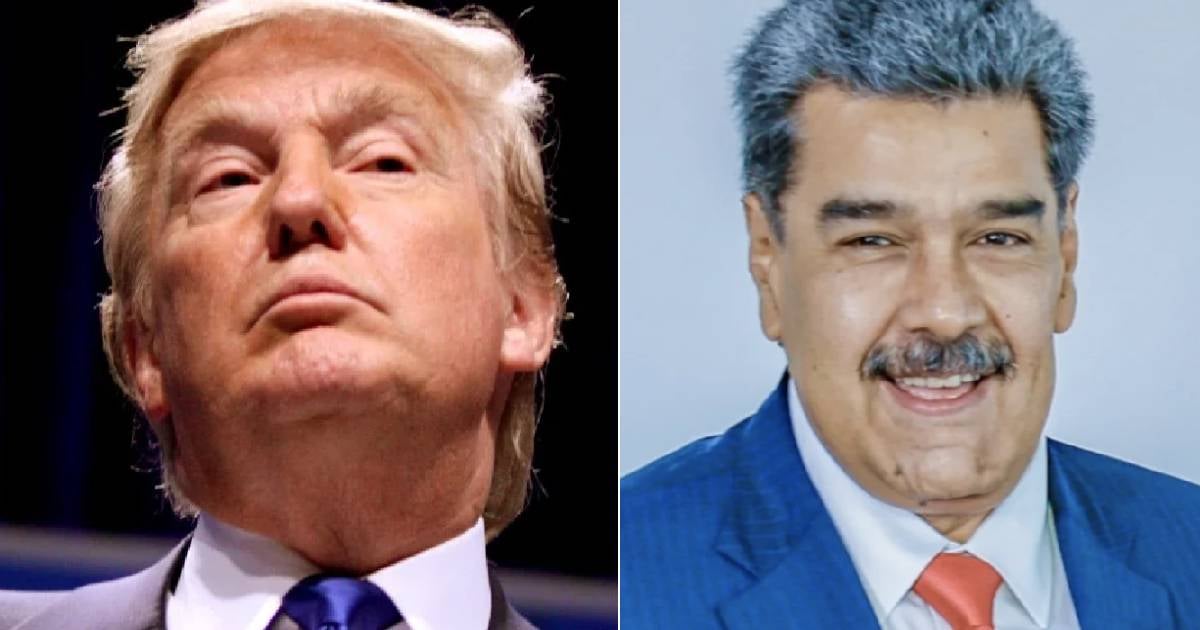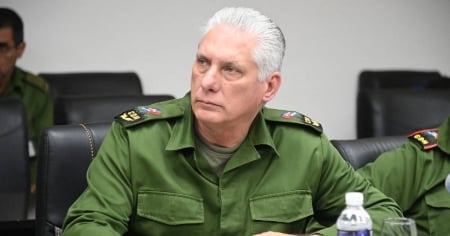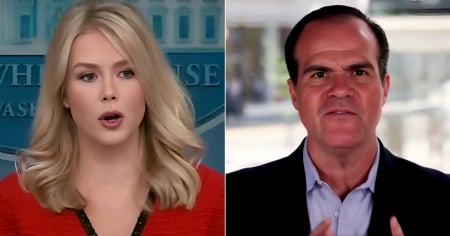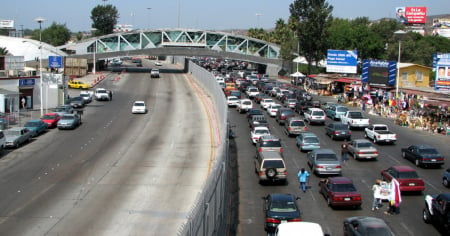
Related videos:
President Donald Trump announced this Saturday that the Venezuelan government agreed to accept all illegal migrants currently in U.S. territory, including members of the feared gang "Tren de Aragua."
A post from the president on his Truth Social account indicates that Venezuela will also provide transportation to repatriate them to their country of origin, an agreement that, according to Trump, is part of his efforts to reduce the presence of illegal migrants in the United States.
"Venezuela has agreed to welcome back to its country all illegal Venezuelan migrants who were in the U.S., including members of gangs like Tren de Aragua," Trump stated in his post.
"Venezuela has also agreed to provide transportation back. We are in the process of deporting a record number of illegal immigrants from all countries, and all countries have agreed to accept these illegal immigrants back," he stated.
This agreement was finalized after an official visit by Trump's special envoy, Richard Grenell, who met with Venezuelan leader Nicolás Maduro on Friday.
After that meeting, six U.S. citizens detained in Venezuela were released and returned to the U.S. with Grenell.
However, it has not been clarified whether there was any kind of economic or political concession—such as the recognition of Maduro as president following an alleged electoral fraud—in exchange for the repatriation of the migrants.
The White House made it clear that this visit did not imply an official recognition of Maduro as the legitimate leader of Venezuela, but the terms of the agreement from Friday remain unclear.
Trump emphasized that this is another step in his plan to "remove record numbers of illegal migrants from all countries," and he affirmed that all the nations involved have agreed to accept these migrants back.
The agreement with the Venezuelan regime comes after Colombia and the U.S. averted a trade war following an agreement on the acceptance of deportation flights, and after Mexico also began receiving migrants deported from other countries such as Cuba.
Grenell's trip to Caracas took place in a delicate political context, as Nicolás Maduro's reelection in January 2025 has not been recognized by the United States or by several countries in the region. Despite the diplomatic tension, Grenell emphasized that no promises of concessions were made in exchange for the repatriation of migrants.
Frequently Asked Questions about the Deportation Agreement between the United States and Venezuela
What does the agreement between the United States and Venezuela on the deportation of migrants imply?
The agreement states that Venezuela will accept the return of all illegal Venezuelan migrants currently in the United States, including members of criminal gangs such as the "Tren de Aragua." This agreement is part of President Trump's efforts to reduce the presence of illegal migrants in the U.S.
What happened to the American citizens detained in Venezuela?
Six American citizens were released following a meeting between Trump's special envoy, Richard Grenell, and Nicolás Maduro. These Americans returned to the U.S. with Grenell, although the terms of the agreement that led to their release have not been disclosed.
Does the United States recognize Nicolás Maduro as the president of Venezuela?
The United States does not recognize Nicolás Maduro as the legitimate president of Venezuela. Despite the deportation agreement and the release of American citizens, the White House has made it clear that this does not imply an official recognition of Maduro following the elections deemed fraudulent.
How does this agreement affect relations between the United States and other countries in Latin America?
The agreement with Venezuela comes in a context where the United States has also reached similar agreements with countries like Colombia and Mexico. These agreements aim to repatriate illegal migrants and reduce unauthorized immigration. In the case of Colombia, there were tensions that were resolved after accepting deportation flights to avoid economic tariffs.
Filed under:





